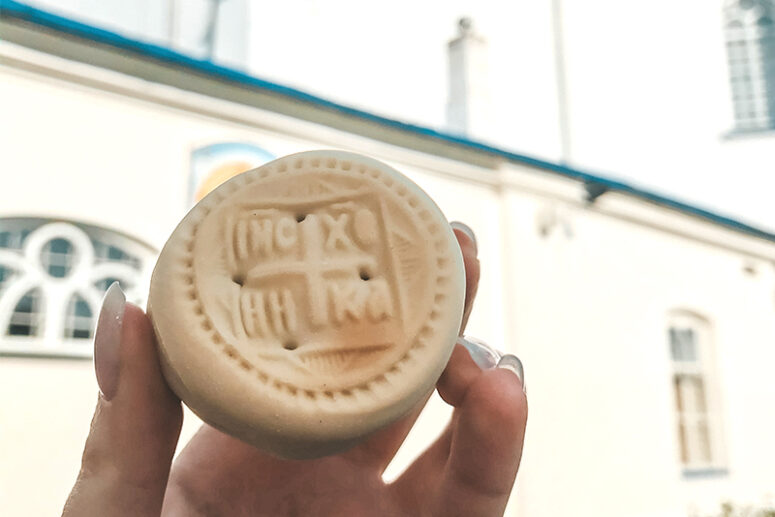
Unfortunately, we will not find a direct answer to this question in any edition of the Church Rules. Therefore, this practice belongs to the realm of personal piety and reverence. Believers usually eat a small amount of prosphora together with holy water every day on an empty stomach, unless, of course, they plan to receive communion that day. However, we cannot declare this a binding rule that everyone must follow.
The practice of eating prosphora on an empty stomach is also not strictly mandatory. It is wrong to reject a sacred object (which prosphora and holy water essentially are) simply because you have eaten something. In the Typikon (a book regulating the order of divine services in the Orthodox Church) there is a remark regarding the consumption of the Epiphany holy water that says: “It should be known to everyone that it is wrong to refuse consuming holy water because of having already eaten, for it is given by the grace of God for the sake of sanctifying the world and all creation” (Typikon, Instructions on the feast of the Baptism of the Lord).
To this end, consuming holy water (and consequently also prosphora) is permissible not only on an empty stomach, because “there is nothing outside a person that by going in can defile, but the things that come out are what defile” (see Mark 7:15). We will not get any benefit from holy water and prosphora if we use them “mechanically” and without realizing why we need them, even if we do it every morning on an empty stomach. And vice versa, if we eat prosphora with the correct inner disposition, even though we have eaten something on that day, I think there will be nothing wrong with it. It is important however that such admissibility is not confused with all-permissiveness.
Andrey Muzolf, Associate Professor of the Kiev Theological Academy
Translated by The Catalogue of Good Deeds
Source: https://pravlife.org/ru/content/kak-chasto-mozhno-est-prosfory




